By Mark McConville
STUNNING bird’s eye view pictures, taken by a British photographer, have revealed the quirky patterns that make up the land we live on.
The incredible images show Icelandic rivers and glacial lakes with the water snaking its way through clumps of ice.
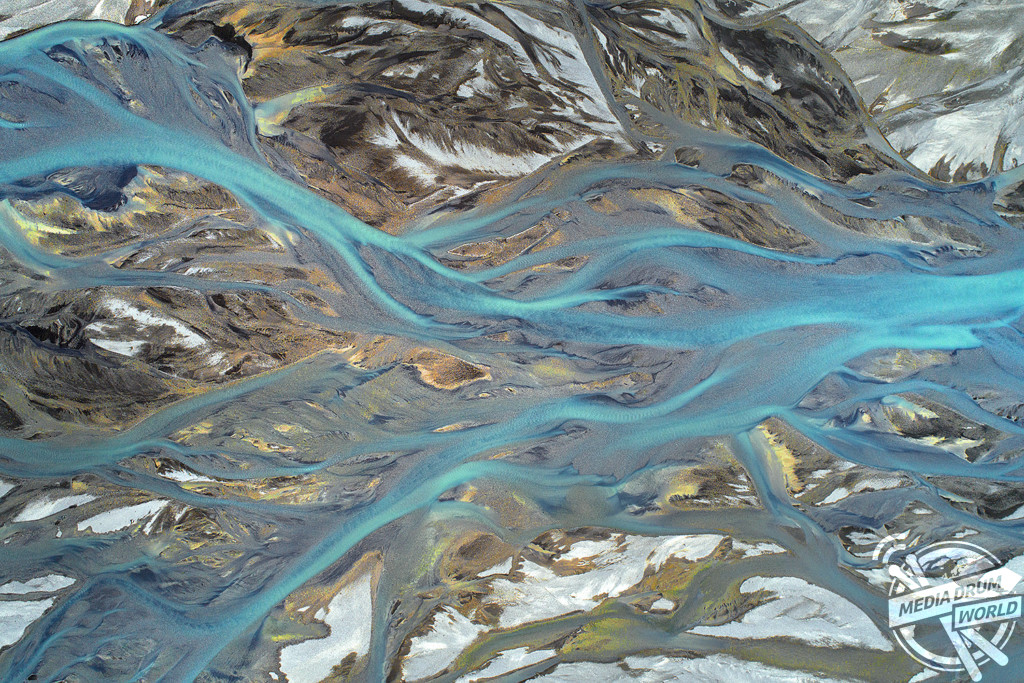
Other spectacular shots show a lonesome tree among a criss-crossed harvested field in Italy, the dotted patterns of an olive grove in Sicily and the straight lines of a rape field in Paddock Wood, Kent.
The amazing aerial photographs were taken in the UK, Iceland and Italy by full-time translator and part-time photographer John Freeman, from Paddock Wood, Kent, UK but who is based in Castelnuovo Rangone (MO), Northern Italy.
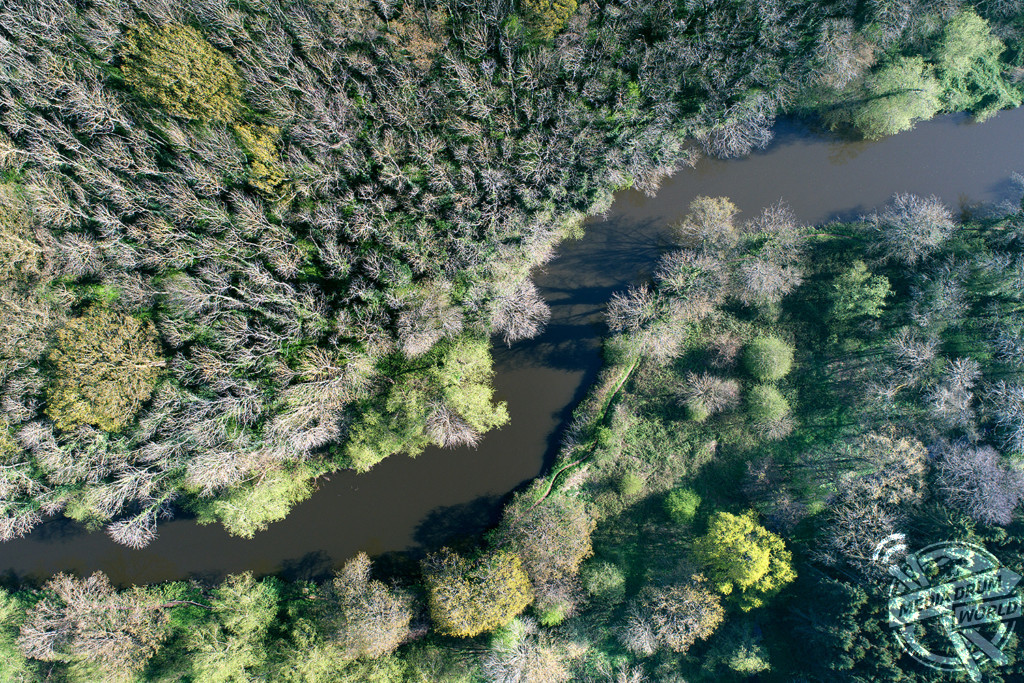
“I think drones are a fantastic opportunity to see the world from above and offer scope for low-altitude aerial imagery which would be almost impossible (or very expensive) by any other means,” he said.
“Another area of photography I’ve always been fascinated by is that of abstract compositions, the textures and patterns that occur in the natural world.
“These images combine both aspects: aerial and abstract compositions and patterns formed by natural or man-made/agricultural features.
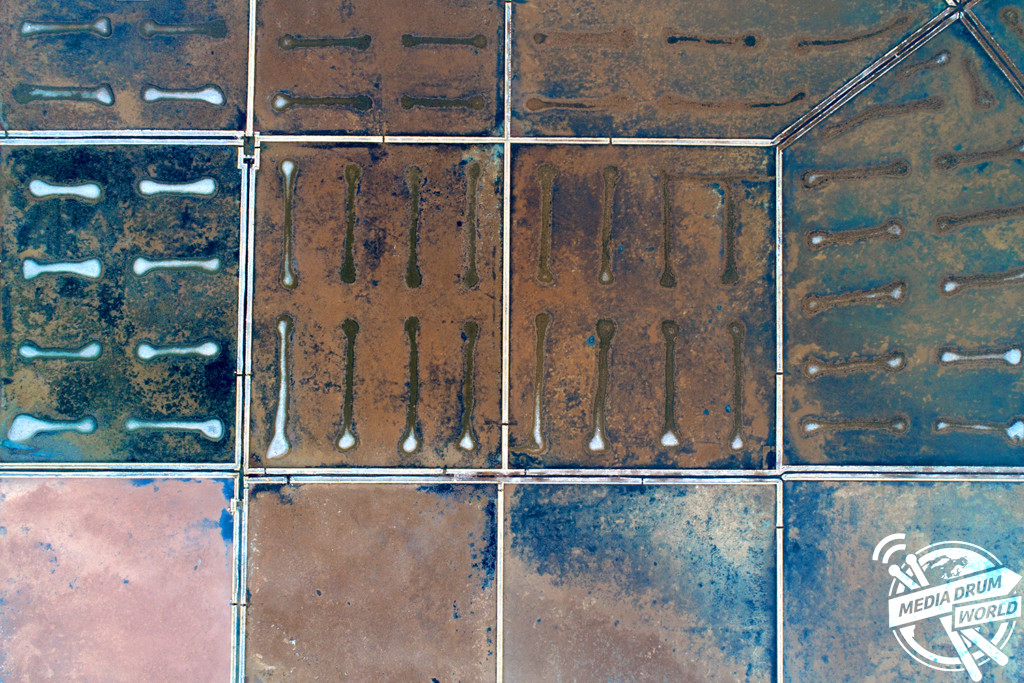
“The photo “landmannalaugar 02” might appear to be lichen on the side of a tree until you see there are five groups of three sheep, tiny dots in the landscape.
“Some people would prefer to have a human element like a person, car or building in the shot to give a clear sense of scale but personally I quite like the ambiguity.”
John, who took the images using a DJI Phantom 4 Pro drone and uses Google Earth to scout potential locations, explained the problems of drone photography.
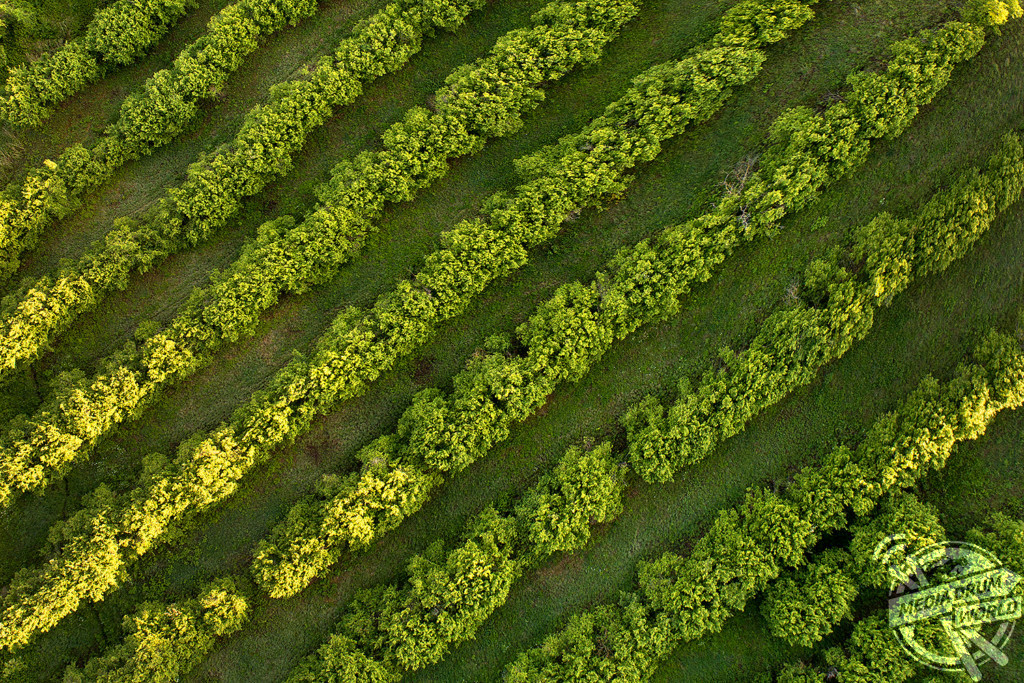
“The main challenges are wind, composition, bird attacks and regulation,” he said.
“Drones are quite susceptible to wind and although the P4P is very powerful and stable compared to previous models, you have to be careful. Iceland for example is notoriously windy.
“To take successful abstract images you have to be sure there are no extraneous elements in your composition. Drones have a fixed lens so to compose a shot you have to manoeuvre the aircraft itself, you can’t simply zoom in.
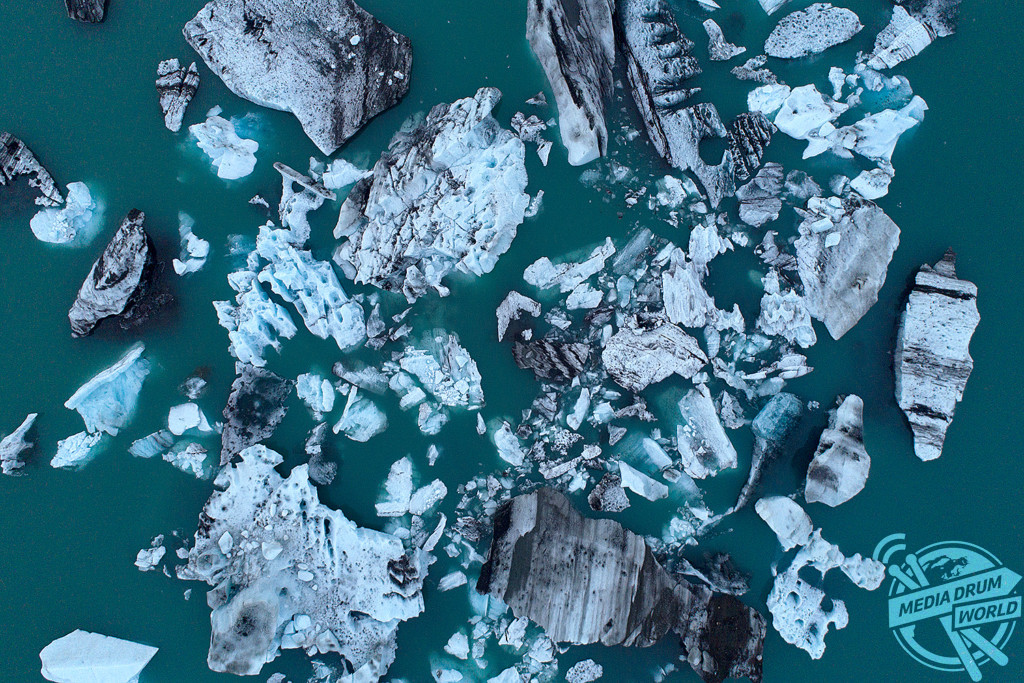
“Bird attacks can be a problem for drones (and people!), so you have to be careful to keep away from nesting areas, especially near the sea.
“Regulations on the use of drones are quite strict in most countries and you need to keep a certain distance from roads, houses, installations and groups of people.”







